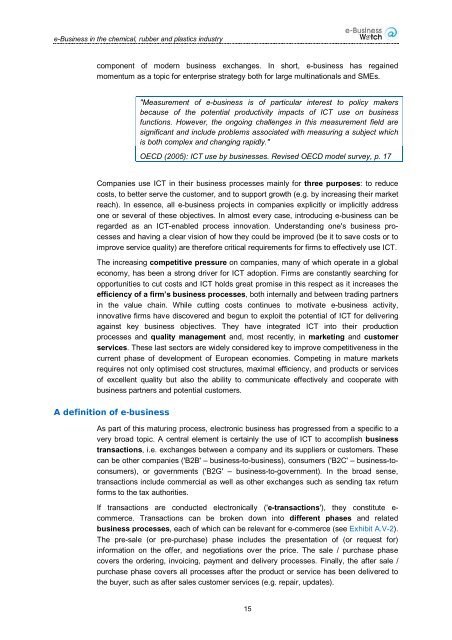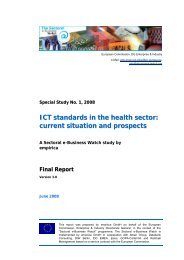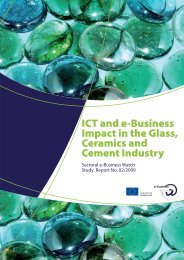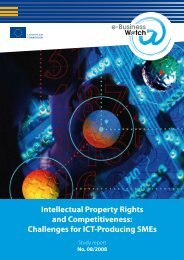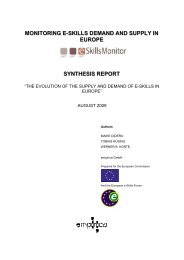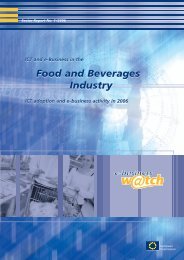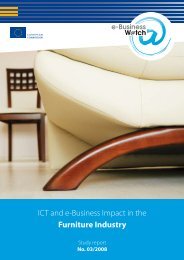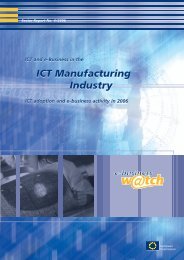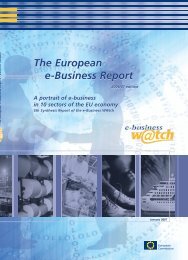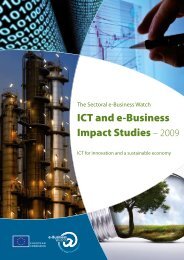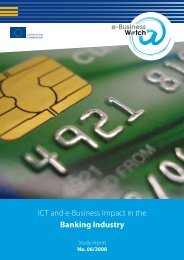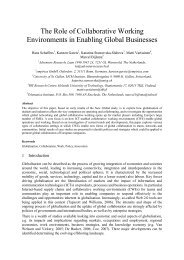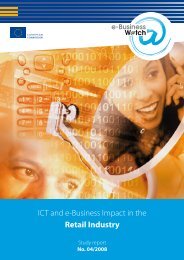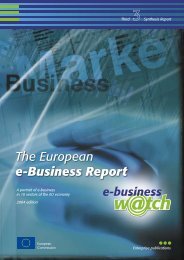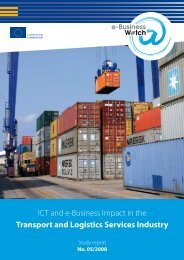Downloads - empirica
Downloads - empirica
Downloads - empirica
Create successful ePaper yourself
Turn your PDF publications into a flip-book with our unique Google optimized e-Paper software.
e-Business in the chemical, rubber and plastics industrycomponent of modern business exchanges. In short, e-business has regainedmomentum as a topic for enterprise strategy both for large multinationals and SMEs."Measurement of e-business is of particular interest to policy makersbecause of the potential productivity impacts of ICT use on businessfunctions. However, the ongoing challenges in this measurement field aresignificant and include problems associated with measuring a subject whichis both complex and changing rapidly."OECD (2005): ICT use by businesses. Revised OECD model survey, p. 17Companies use ICT in their business processes mainly for three purposes: to reducecosts, to better serve the customer, and to support growth (e.g. by increasing their marketreach). In essence, all e-business projects in companies explicitly or implicitly addressone or several of these objectives. In almost every case, introducing e-business can beregarded as an ICT-enabled process innovation. Understanding one's business processesand having a clear vision of how they could be improved (be it to save costs or toimprove service quality) are therefore critical requirements for firms to effectively use ICT.The increasing competitive pressure on companies, many of which operate in a globaleconomy, has been a strong driver for ICT adoption. Firms are constantly searching foropportunities to cut costs and ICT holds great promise in this respect as it increases theefficiency of a firm’s business processes, both internally and between trading partnersin the value chain. While cutting costs continues to motivate e-business activity,innovative firms have discovered and begun to exploit the potential of ICT for deliveringagainst key business objectives. They have integrated ICT into their productionprocesses and quality management and, most recently, in marketing and customerservices. These last sectors are widely considered key to improve competitiveness in thecurrent phase of development of European economies. Competing in mature marketsrequires not only optimised cost structures, maximal efficiency, and products or servicesof excellent quality but also the ability to communicate effectively and cooperate withbusiness partners and potential customers.A definition of e-businessAs part of this maturing process, electronic business has progressed from a specific to avery broad topic. A central element is certainly the use of ICT to accomplish businesstransactions, i.e. exchanges between a company and its suppliers or customers. Thesecan be other companies ('B2B' – business-to-business), consumers ('B2C' – business-toconsumers),or governments ('B2G' – business-to-government). In the broad sense,transactions include commercial as well as other exchanges such as sending tax returnforms to the tax authorities.If transactions are conducted electronically ('e-transactions'), they constitute e-commerce. Transactions can be broken down into different phases and relatedbusiness processes, each of which can be relevant for e-commerce (see Exhibit A.V-2).The pre-sale (or pre-purchase) phase includes the presentation of (or request for)information on the offer, and negotiations over the price. The sale / purchase phasecovers the ordering, invoicing, payment and delivery processes. Finally, the after sale /purchase phase covers all processes after the product or service has been delivered tothe buyer, such as after sales customer services (e.g. repair, updates).15


